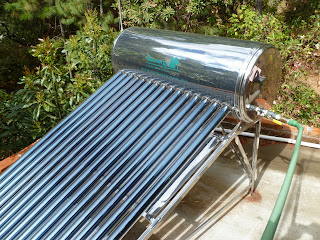 We came across an excellent article today by the venerable David Suzuki speaking to the importance of small-scale agriculture to global food security. He points out that healthy ecosystems, of which agriculture is an integral part, must maintain a level of balance and biodiversity that large-scale agriculture is incapable of providing. Sounds most logical!
We came across an excellent article today by the venerable David Suzuki speaking to the importance of small-scale agriculture to global food security. He points out that healthy ecosystems, of which agriculture is an integral part, must maintain a level of balance and biodiversity that large-scale agriculture is incapable of providing. Sounds most logical!In contextualizing his perspective, Suzuki points to a paper in the Agriculture and Human Values journal authored by Michael Jahi Chappell and Liliana LaValle entitled Food security and biodiversity: can we have both? The journal article points to the tendency of industrial agriculture to try to correct mistakes by devising "new crutches" to tackle them, such as more powerful pesticides, soil manipulation, etc. This ever deepening hole is now consuming us!
The post WWII and green revolution argument that industrial agriculture is the only way to feed our burgeoning global population is losing its lustre in light of obvious shortcomings. Increasingly, concerns by citizens that perhaps governments and corporations might not have their best interests at heart are predominating.
Suzuki closes his article with the following quote from Chappell & LaValle:
If it is ... possible for alternative agriculture to provide sufficient yields, maintain a higher level of biodiversity, and avoid pressure to expand the agricultural land base, it would indicate that the best solution to both food security and biodiversity problems would be widespread conversion to alternative practices.
We at Visionary Values agree 100% and will continue to present these issues to those around us. Let's take on the challenge to recover our connection to the land and our communities and ensure that future generations have the opportunity to eat healthy foods grown in sustainable ways!

















